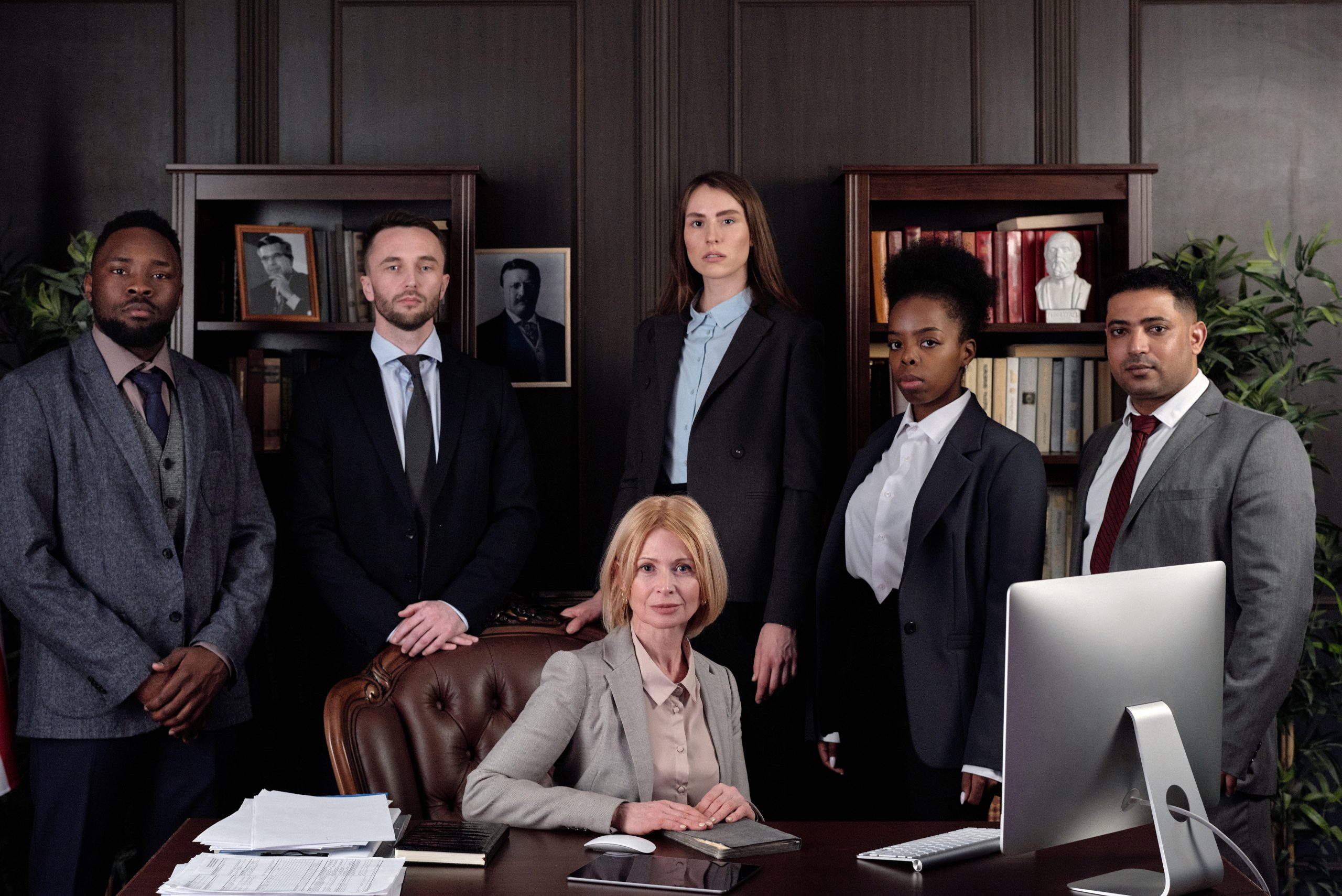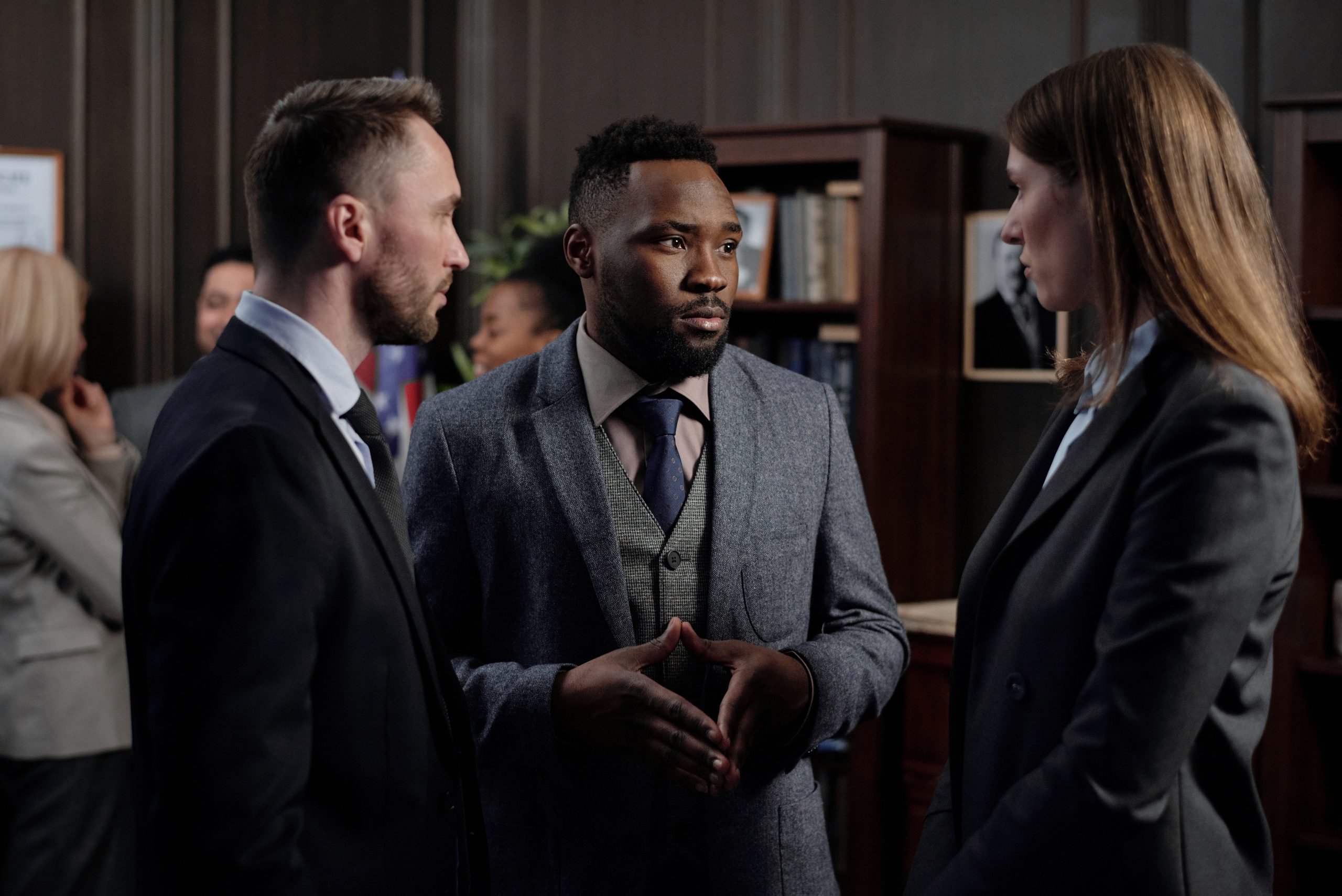In the criminal justice system, the importance of a fair and just court cannot be overstated. Criminal court plays a critical role in convicting the guilty and protecting the innocent. It is a place where evidence is presented, arguments are made, and justice is ultimately served. This article aims to provide you with a comprehensive understanding of criminal court, exploring its purpose, procedures, and the rights of the accused. By addressing common concerns and answering frequently asked questions, this article aims to guide you through the complexities of the criminal justice system, instilling confidence and setting this lawyer apart as a trusted advocate for those facing criminal charges.

I. Understanding Criminal Court Proceedings
A. Overview of Criminal Court
Criminal court is a branch of the judicial system that deals with cases involving individuals accused of committing crimes. It is the venue where the guilt or innocence of the accused is determined, and if found guilty, the appropriate punishment is decided upon. Criminal court proceedings are governed by specific laws and procedures to ensure fairness and justice.
B. Parties Involved in Criminal Court
There are several key parties involved in criminal court proceedings. The most prominent parties include the prosecution, which represents the state or government, and the defense, which represents the accused. Additionally, there is a judge who presides over the case, ensuring that the trial proceeds in accordance with the law. Jury members, if applicable, play a crucial role in determining the outcome of the trial.
C. Purpose of Criminal Court
The primary purpose of criminal court is to weigh the evidence presented and establish whether the accused is guilty beyond a reasonable doubt. The court aims to protect the rights of the accused while also ensuring the safety and well-being of society. It is vital to note that the focus of criminal court is on holding individuals accountable for their actions rather than seeking compensation for victims.
D. Differences Between Criminal and Civil Court
Criminal court differs from civil court in several ways. In criminal court, the accused faces charges brought by the government, whereas in civil court, individuals or organizations typically file lawsuits against each other seeking compensation. The burden of proof is different in criminal court, where the accused must be proven guilty beyond a reasonable doubt. In civil court, it is only necessary to establish liability by a preponderance of the evidence.
II. Pretrial Phase
A. Arrest and Booking
The pretrial phase of criminal court proceedings begins with the arrest and booking of a suspect. After an arrest, the suspect is taken into custody and processed, with their personal information recorded and fingerprints taken. The suspect may be given the opportunity to post bail or await their court appearance while in custody.
B. Initial Appearance
The initial appearance is the first court appearance after an arrest takes place. During this phase, the judge informs the accused of the charges against them, reads them their rights, and determines the conditions of their release. The accused may also have the opportunity to enter a plea during the initial appearance.
C. Bail and Pretrial Release
Bail is the money or property deposited with the court to secure the release of an accused individual before their trial. The judge considers factors such as the seriousness of the crime, the accused’s criminal history, and the flight risk when determining whether to grant bail and if so, the amount required. Pretrial release may also be an option, allowing the accused to be released without posting bail, but under certain conditions.
D. Grand Jury or Preliminary Hearing
In some jurisdictions, a grand jury or preliminary hearing is conducted during the pretrial phase. These proceedings are held to determine if there is enough evidence to proceed to trial. A grand jury consists of a group of citizens who review the evidence presented by the prosecution and determine if there is probable cause for the case to proceed. A preliminary hearing is similar but is presided over by a judge who evaluates the evidence and decides whether there is enough cause for a trial.
E. Plea Bargaining
Plea bargaining is a negotiation process that occurs between the prosecution and defense, with the goal of reaching a mutually agreeable resolution to the case. The accused may choose to plead guilty to a lesser charge or accept a more lenient sentence in exchange for avoiding a trial. Plea bargaining can save time and resources for both the court system and the parties involved.
III. Trial Phase
A. Jury Selection
During the trial phase, jury selection takes place to determine the individuals who will serve as jurors. Potential jurors are questioned by the prosecution and defense attorneys to assess their impartiality and suitability for the case. The selected jurors listen to the evidence presented and ultimately decide the guilt or innocence of the accused.
B. Opening Statements
After jury selection, the trial begins with opening statements. The prosecution and defense each have the opportunity to present an overview of their case to the jury. The prosecution outlines the evidence they will present to prove the accused’s guilt, while the defense provides an overview of their strategy and challenges the prosecution’s case.
C. Presentation of Evidence
During this phase, both the prosecution and defense present their evidence to support their respective arguments. The evidence may include witness testimonies, physical evidence, expert opinions, and documentary evidence. The presentation of evidence aims to convince the jury of the accused’s guilt or innocence based on the facts presented.
D. Examination and Cross-Examination
Witnesses called by the prosecution and defense undergo examination and cross-examination. The examining attorney asks questions to elicit relevant information and testimony supporting their case. The opposing attorney then has the opportunity to cross-examine the witnesses, challenging their credibility or presenting different interpretations of the evidence.
E. Closing Arguments
Following the presentation of evidence, both the prosecution and defense present their closing arguments. This is the final opportunity for each side to persuade the jury of their position and highlight key points from the trial. The attorneys summarize the evidence, reiterate their main arguments, and make a final appeal to the jury to reach a favorable verdict.
F. Jury Deliberation and Verdict
After the closing arguments, the jury deliberates privately to reach a verdict. Jurors carefully review the evidence, consider the arguments presented, and engage in discussions to arrive at a unanimous decision. Once a verdict is reached, it is announced in court, and the judge proceeds to the sentencing phase if the accused is found guilty.
IV. Sentencing Phase
A. Sentencing Hearing
If the accused is found guilty or pleads guilty, a separate hearing known as a sentencing hearing is held. During this phase, the judge determines the appropriate punishment based on various factors, including the nature of the crime and the defendant’s criminal history. The defense and prosecution may present evidence and arguments regarding the appropriate sentence.
B. Factors Considered in Sentencing
When determining the sentence, the judge takes into account various factors, such as the severity of the crime, the impact on the victim and community, any prior criminal record, the defendant’s remorse, and the potential for rehabilitation. These factors guide the judge in making an informed decision regarding the appropriate punishment.
C. Types of Criminal Sentences
There are various types of criminal sentences that can be imposed, depending on the nature of the crime and the circumstances. These may include fines, probation, community service, restitution to the victim, incarceration, or a combination of these. The judge carefully considers the unique circumstances of each case and aims to impose a sentence that is both fair and serves the interest of justice.
V. Appeals Process
A. Grounds for Appeal
An appeal can be filed if there are legal grounds to challenge the decision made during the trial or the sentencing phase. Common grounds for appeal include errors in the application of the law, misconduct by the prosecution or defense, insufficient evidence, or incorrect legal instructions provided to the jury.
B. Appellate Court Review
The appeals process takes place in appellate courts, where a panel of judges reviews the case and determines whether any errors occurred during the trial or sentencing phase. The appellate court considers the arguments presented by both parties and may conduct further analysis of the evidence and legal issues involved.
C. Post-Appeal Options
Depending on the ruling of the appellate court, there are several post-appeal options available. If the conviction is upheld, the defendant may consider other remedies, such as seeking post-conviction relief, filing a habeas corpus petition, or pursuing alternative dispute resolution methods to resolve the case outside of the traditional court system.
VI. Alternative Dispute Resolution
A. Mediation
Mediation is an alternative dispute resolution process in which a neutral third-party mediator facilitates negotiations between the prosecution and defense. The mediator assists the parties in reaching a mutually acceptable resolution without going to trial. Mediation can provide a more collaborative and less adversarial approach to resolving criminal disputes.
B. Arbitration
Arbitration is another form of alternative dispute resolution where a neutral arbitrator or panel makes a binding decision after reviewing the arguments and evidence presented by both parties. This process can be used in certain criminal cases to avoid the lengthy and costly trial process while still providing a resolution.

VII. Specialized Courts
A. Drug Court
Drug courts are specialized courts that focus on individuals with substance abuse issues who have committed non-violent drug-related offenses. The goal of drug courts is to provide alternatives to traditional sentencing and emphasize treatment, rehabilitation, and accountability. These courts aim to break the cycle of substance abuse and reduce recidivism rates.
B. Mental Health Court
Mental health courts cater to defendants with mental health conditions who have committed non-violent offenses. These courts recognize the unique needs of individuals with mental illness and work to connect them with appropriate mental health services rather than imposing traditional punitive measures. Mental health courts seek to address the root causes of criminal behavior and promote the rehabilitation of defendants.
C. Veterans Court
Veterans courts are specifically designed for veterans who have become involved in the criminal justice system. These courts aim to address the underlying issues that may contribute to the veteran’s involvement in criminal activity. By providing specialized support and access to resources such as mental health treatment and veterans’ services, these courts aim to facilitate rehabilitation and reduce recidivism among veterans.
D. Juvenile Court
Juvenile courts handle cases involving individuals under the age of 18 who are accused of committing crimes. The focus of juvenile court is on rehabilitation rather than punishment. Juvenile courts aim to protect the best interests of the minor while addressing their specific needs through measures such as counseling, education, and community service.
VIII. Frequently Asked Questions
A. What should I wear to court?
It is important to dress appropriately when attending court. Business attire is generally recommended, which includes wearing formal clothing such as suits, dresses, or dress pants and blouses. The goal is to project a professional and respectful image to the judge and jury.
B. Can I represent myself in criminal court?
While individuals have the right to represent themselves in criminal court, it is advisable to seek the assistance of an experienced criminal defense attorney. Legal proceedings can be complex, and an attorney can provide valuable guidance, protect your rights, and navigate the intricacies of the legal system on your behalf.
C. How long does a criminal court case typically last?
The duration of a criminal court case varies depending on several factors, including the complexity of the charges, the availability of evidence and witnesses, and the court’s schedule. Simple cases may be resolved quickly, while more complex cases can take several months or even years to reach a resolution.
D. What happens if I plead guilty?
If you choose to plead guilty, you are admitting to the charges brought against you. The court will then proceed to the sentencing phase, where the judge will determine the appropriate punishment. It is essential to consult with a criminal defense attorney before making any decisions regarding your plea.
E. What are my rights during a criminal court proceeding?
As an accused individual, you have several rights during a criminal court proceeding. These include the right to a fair and public trial, the right to legal representation, the right to confront witnesses, the right against self-incrimination, and the right to appeal a conviction. It is crucial to fully understand your rights and seek legal advice to protect them effectively.

IX. Conclusion
Criminal court proceedings are a complex and vital component of the legal system. Understanding the various phases and parties involved is crucial for individuals facing criminal charges or those seeking a deeper knowledge of the legal process. By familiarizing yourself with the pretrial, trial, and sentencing phases, as well as alternative dispute resolution options and specialized courts, you can better navigate the intricacies of the criminal justice system. It is crucial to consult with an experienced criminal defense attorney for personalized guidance and representation tailored to your specific case.



